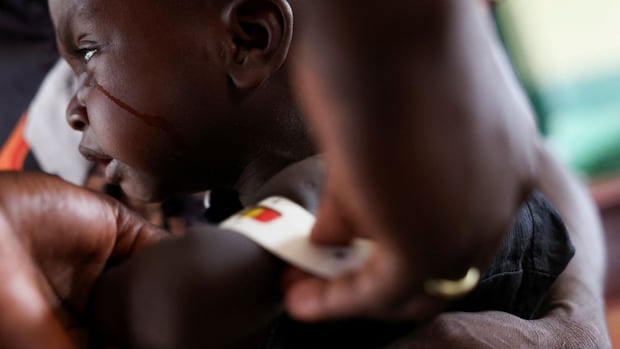Trump administration to burn $13M worth of female contraceptives, despite NGO's offer to take them
Published: 2025-08-01 00:20:21 | Views: 12
As It HappensThis NGO tried to save $13M worth of USAID contraceptives from being burned
The U.S. State Department plans to incinerate roughly $13.2 million worth of women's contraceptives despite offers from multiple aid agencies to distribute the supplies at no cost.
The supplies, which include various forms of birth control, were intended for family planning programs in low-income African nations.
Instead, they've been sitting in a warehouse in Belgium for months after President Donald Trump's administration froze most foreign aid in January.
MSI Reproductive Choices, a U.K.-based global reproductive health organization, says it offered to take the supplies and distribute them to those in need at no cost to the government, but their offer was rebuked.
"To me that sends a really clear signal that this is an ideological position," Sarah Shaw, MSI's director of advocacy, told As It Happens guest host Paul Hunter.
"This is just another front on the war on women that we're currently seeing coming out of the U.S., both domestically and internationally."
Shaw says MSI was told through an intermediary that the government wants to sell the products at market value, which the charity could not afford to do.
The United Nations' sexual and reproductive health agency, UNFPA, offered to buy the contraceptives outright, also to no avail, according to Reuters.
The U.S. State Department did not respond to questions from CBC. But spokesperson Tommy Pigott told reporters on Thursday the government is "still in the process of determining the pathway forward."
Belgium calls it a 'regrettable outcome'
The supplies, valued at $9.7 million US, once belonged to the United States Agency for International Development (USAID), which the Trump administration has shut down.
During a press briefing on Thursday, Pigott said the supplies do not include condoms or HIV medication, but rather "select products" purchased under the previous administration that "could potentially be abortifacients," meaning products that induce abortion.
But aid agencies and media organizations say the supplies slated for destruction are designed to prevent unwanted pregnancies, not terminate them.
Reuters, citing seven confidential sources close to the story, reports the warehouse contains contraceptive pills and implants, as well as intrauterine devices, all of which are forms of birth control.
Pigott said the products could be in contravention of the Kemp-Kasten amendment, which prevents the government from supporting programs that engage in "coercive abortion or involuntary sterilization," as well as the Mexico City policy, a pact that prohibits the U.S. government from contributing to or working with organizations that provide abortion-related services or information.
The latter could explain why the U.S. declined MSI's offer, says Shaw. Her organization refuses to comply with the Mexico City policy, which she and other aid organizations refer to as "the global gag order."
But it doesn't explain why they've rejected similar overtures from others trying to prevent the contraceptives from going to waste at taxpayer expense, she said.
The Belgian foreign ministry said Brussels had held talks with U.S. authorities and "explored all possible options to prevent the destruction, including temporary relocation."
"Despite these efforts, and with full respect for our partners, no viable alternative could be secured. Nevertheless, Belgium continues to actively seek solutions to avoid this regrettable outcome," it said in a statement.
"Sexual and reproductive health must not be subject to ideological constraints."
Uproar in France
The State Department previously confirmed it will spend $167,000 US ($228,000 Cdn) to incinerate the contraceptives at a facility in France that handles medical waste.
That news is not sitting well in France, where lawmakers, reproductive health organizations and feminist groups are calling on the government to call it off.
"We are following this situation closely and we support the will of the Belgian authorities to find a solution to avoid the destruction of contraceptives," France's foreign ministry said in a statement published by the Guardian.
"The defence of sexual health and reproductive rights is a foreign policy priority for France."
Shaw says she's grateful to the people in France who are championing this cause.
"Even if we can't stop the destruction we're not going to let this go quietly," she said. "If this happens on French soil under a government that has a feminist foreign policy, I think that would be a great shame, a great shame."
Doctors Without Borders calls plan 'reckless and harmful'
Avril Benoît, the CEO of Doctors Without Borders in the U.S., called the plan a "reckless and harmful act against women and girls everywhere."
"Contraceptives are essential and lifesaving health products," she said in a press release. "[Our organization] has seen first-hand the positive health benefits when women and girls can freely make their own health decisions by choosing to prevent or delay pregnancy — and the dangerous consequences when they cannot."
Shaw agrees. She says the U.S. has made a big deal about finding government efficiencies as it slashes global aid and its own civil service.
But every dollar spent on reproductive health, she says, leads to much greater savings down the road.
"It makes no sense to me. If they really want efficiency, investing in family planning is the best investment you can make for development," she said.
"You keep girls in schools. You break generational cycles of poverty. You create opportunity for a new generation of young women.
"It's a no-brainer. So it was a completely political act, and African women are going to pay the price for this."
Source link








